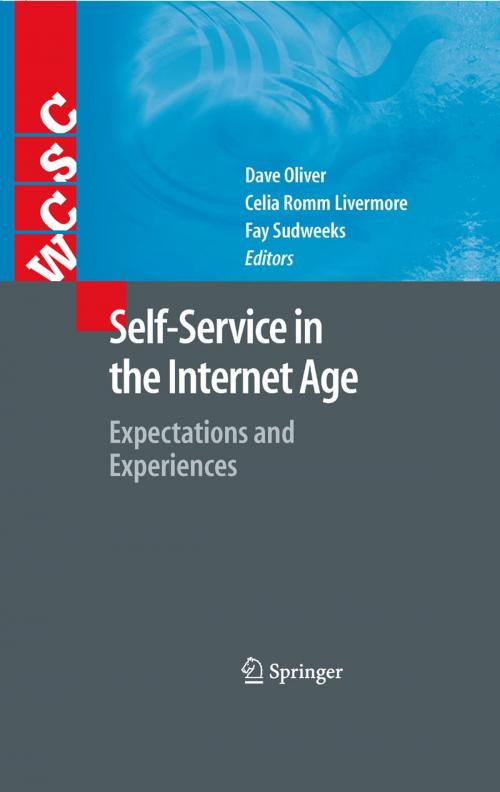Self-Service in the Internet Age
Expectations and Experiences
Nonfiction, Computers, Advanced Computing, Information Technology, General Computing| Author: | ISBN: | 9781848002074 | |
| Publisher: | Springer London | Publication: | March 2, 2009 |
| Imprint: | Springer | Language: | English |
| Author: | |
| ISBN: | 9781848002074 |
| Publisher: | Springer London |
| Publication: | March 2, 2009 |
| Imprint: | Springer |
| Language: | English |
Dave Oliver, Celia Romm and Fay Sudweeks This book follows previous texts: Celia Romm and Fay Sudweeks (eds) (1998), Doing Business Electronically: A Global Perspective of Electronic Commerce, and Fay Sudweeks and Celia Romm (eds) (1999) Doing Business on the Internet: Opportunities and Pitfalls. Not only is this current book about doing something, but it also aims to present insights into how electronic commerce impacts upon the lives of everyday people; in other words, how electronic commerce is received, as well as how it is ‘done’. Accessing the Internet on a regular basis has become an established activity for many people. This activity gives academics and researchers the opportunity to observe and study the nature and effects of this engagement in society. The influence of the Internet in our social fabric also provides the incentive for organizations to implement a web presence. As expressed in the title Self-Service on the Internet: Expectations and Experiences, we aim to present the expectations or reasons for the availability of various services on the Internet, and social responses to these developments, i. e. the experiences. These are the two main dimensions to the chapters presented in this book. The major component in the title is self-service on the Internet. The term electronic commerce is too restrictive for our purpose as it tends towards commercial overtones, which do not especially concern us.
Dave Oliver, Celia Romm and Fay Sudweeks This book follows previous texts: Celia Romm and Fay Sudweeks (eds) (1998), Doing Business Electronically: A Global Perspective of Electronic Commerce, and Fay Sudweeks and Celia Romm (eds) (1999) Doing Business on the Internet: Opportunities and Pitfalls. Not only is this current book about doing something, but it also aims to present insights into how electronic commerce impacts upon the lives of everyday people; in other words, how electronic commerce is received, as well as how it is ‘done’. Accessing the Internet on a regular basis has become an established activity for many people. This activity gives academics and researchers the opportunity to observe and study the nature and effects of this engagement in society. The influence of the Internet in our social fabric also provides the incentive for organizations to implement a web presence. As expressed in the title Self-Service on the Internet: Expectations and Experiences, we aim to present the expectations or reasons for the availability of various services on the Internet, and social responses to these developments, i. e. the experiences. These are the two main dimensions to the chapters presented in this book. The major component in the title is self-service on the Internet. The term electronic commerce is too restrictive for our purpose as it tends towards commercial overtones, which do not especially concern us.















